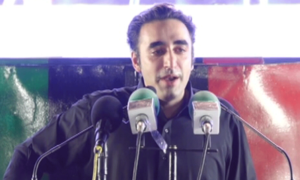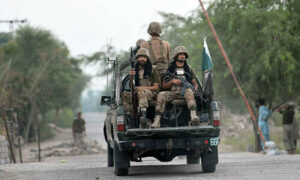Azerbaijan Airlines flight’s tragic crash this week, which claimed 38 lives and left 29 survivors injured, occurred amid a backdrop of escalating tensions between Russia and Ukraine.
Russian aviation chief Dmitry Yadrov confirmed on Friday that the crash of the Azerbaijan Airlines flight, which was en route from Baku to Grozny, occurred as Ukrainian drones were targeting the region.
The plane, which was flying to Grozny, the regional capital of the Russian republic of Chechnya, diverted after encountering difficulties with landing in heavy fog.
As it tried to land, the aircraft reportedly came under attack, which led to its crash in Aktau, Kazakhstan, after it attempted to make an emergency landing there.
While Azerbaijan Airlines cited “physical and technical interference” as the cause of the crash, it did not specify whether this was related to air defense systems or other factors. The airline also announced the suspension of flights to several Russian airports, though it did not elaborate further.
Russian authorities have remained largely silent, and while Kremlin spokesman Dmitry Peskov stated that the cause would be determined through official investigations, he refrained from offering any immediate comment on speculation regarding a potential Ukrainian attack.
The tragedy, which occurred on Wednesday, is under investigation by officials from Azerbaijan, Kazakhstan, and Russia, although authorities have not publicly disclosed any findings. However, Rasim Musabekov, a member of Azerbaijan’s parliament, suggested that the plane was shot at while flying over Grozny, and urged Russia to issue an official apology.
Adding to the mystery surrounding the incident, experts pointed to damage on the plane’s tail section, which some speculated could be the result of Russian air defense systems intercepting Ukrainian drone attacks in the area.
These suspicions were fueled by reports from FlightRadar24, which noted strong GPS jamming that interfered with flight tracking data. This could suggest that Russian systems were actively attempting to neutralize incoming drones, a tactic previously employed by Russia to fend off Ukrainian strikes.
The incident also occurred amid a broader disruption to air travel between Azerbaijan and Russia. Following the crash, Azerbaijan Airlines suspended flights from Baku to Grozny and Makhachkala.
The airline has since expanded these suspensions, halting flights to eight more Russian cities, though services to major Russian hubs like Moscow and St Petersburg remain operational.
Kazakhstan’s Qazaq Air also announced a temporary suspension of flights to Yekaterinburg, while FlyDubai halted services to Sochi and Mineralnye Vody in southern Russia until January 5.
Adding to the mounting concerns, Israel’s El Al carrier suspended flights to Moscow citing “developments in Russia’s airspace,” with a reassessment of the situation expected next week.
As investigators continue their work in Grozny, Yadrov stressed that multiple factors need to be examined in the probe, which will be conducted in cooperation with relevant authorities.
The incident adds to a series of aviation challenges in the region, with both the ongoing conflict and the use of advanced air defense and jamming technologies complicating efforts to ensure safety for commercial flights in the area.











